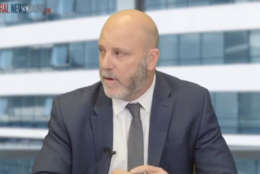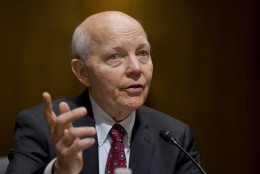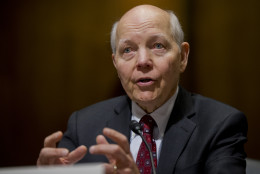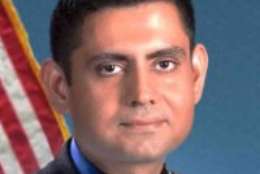Cybersecurity
-
Rick Driggers explains the NCIC leads nationwide efforts to detect, prevent, respond to and recover from cyber attacks, following procedures in the national response plan.
August 04, 2017 -
The Department of Energy faces distinct challenges in securing an energy infrastructure that largely consists of equipment designed before the internet was a consideration, much less hacking and cybersecurity. But it also has some unique resources to draw on in accomplishing this mission.
August 04, 2017 -
Federal efforts to develop a well-trained cybersecurity workforce are ramping up, due in large part to the edicts of President Donald Trump's cybersecurity executive order.
August 02, 2017 -
The General Services Administration awarded a spot on the Enterprise Infrastructure Solutions (EIS) contract to four incumbents and six new telecommunication bidders to increase competition.
August 01, 2017 ActioNet's Mike Abel and Kate Russell join host John Gilroy on this week's Federal Tech Talk to discuss data center consolidation, and how your agency can avoid roadblocks during its move to the cloud. August 1, 2017
July 31, 2017-
Whether you're a federal agency or a contractor, cybersecurity has become too important to leave solely to the tech staff. The worst threat these days seems to be the insider threat. Addie Cliffe and Evan Wolff, attorneys with the privacy and cyberscurity group at Crowell Moring, joined Federal Drive with Tom Temin to offer advice on how to take a corporate approach.
July 28, 2017 -
Rick Howard, the chief security officer for Palo Alto Networks, said the cybersecurity consumption model will be disrupted by orchestration and automation in the cloud.
July 28, 2017 -
Treasury Secretary Steve Mnuchin and IRS Commissioner John Koskinen urged Congress to fund the tax administration so it can invest in IT infrastructure, and meet customer service demands.
July 26, 2017 -
The Internal Revenue Service reported between January and June 1, it identified roughly 10,000 business returns for potential ID theft, compared to 4,000 in 2016, and around 350 in 2015.
July 25, 2017 What are the latest breakthroughs in data storage? Find out this week when Nick Psaki, principal systems engineer for Pure Storage joins host John Gilroy on Federal Tech Talk. July 25, 2017
July 24, 2017-
Homomorphic Encryption Computing Techniques with Overhead Reduction (HECTOR) is important, and it's something the intelligence community is seeking for very good reasons. Dr. Mark Heiligman, program manager for HECTOR at the Intelligence Advanced Research Projects Activity, explains why it's so important on Federal Drive with Tom Temin.
July 24, 2017 -
Pentagon cybersecurity officials say two global ransomware attacks highlighted improvements the Defense Department has made to its ability to command and control its own networks, but also showed areas that are ripe for improvement.
July 24, 2017 -
AT&T and FirstNet say they are working to secure traffic on the first responder network, and are building a fleet of cell tower trucks ready for deployment.
July 20, 2017 -
The Homeland Security Department is sharing information and best practices not only on cybersecurity, but on cybersecurity training for a quarter million employees. Hemant Baidwan, director of governance and executive management at DHS, led the team resulting in the DHS Information Security Training Working Group. He tells Federal Drive with Tom Temin how it works.
July 20, 2017 -
NASA and EPA share concerns for balancing cybersecurity and use of IoT, but how they approach those concerns depends on agency mission — and budget.
July 19, 2017













